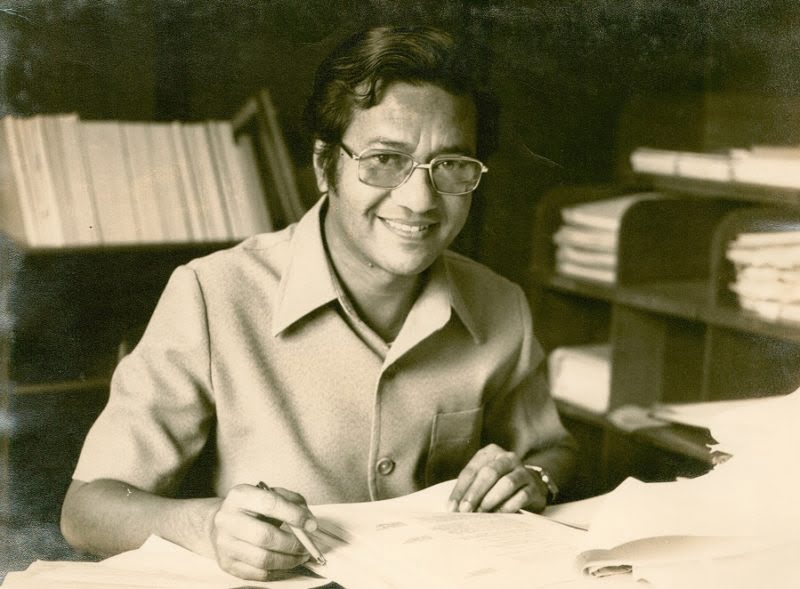Dr Mahathir Mohamad: Reforming Spending From The Top Down (Part 1)
When Tun Dr Mahathir Mohamad took over the reins of the country in 1981, he turned Malaysia into one of the developing world’s most successful economies.
He brought to his leadership his penchant for writing, the struggles of growing up as a commoner without any links to the British elite or Malay aristocracy, his business savviness that got him through difficult times, and the meticulousness of a doctor.
During his 22 years in power, he adopted pragmatic economic policies yet his leadership was chequered with political measures deemed repressive.
However, he had raised the international living standards and won worldwide acclaim, and in doing so, Dr Mahathir has instilled a sense of national identity, pride and confidence among Malaysians of all ethnicities.
In retirement, he broke a promise to stay out of politics, falling out with his successors – Tun Abdullah Ahmad Badawi and Datuk Seri Najib Razak – eventually leaving Umno in 2016, the party he joined in 1946.
Dr Mahathir is now the face of Parti Pribumi Bersatu Malaysia, the Malay nationalist party closely allied with the opposition.
In Part 1 of this wide-ranging interview, iMoney’s writer, Emmanuel Surendra, meets with the country’s longest-serving prime minister at his office in Putrajaya to discuss his life and the state of the country’s economy.
Let’s start with your upbringing. How did your “middle class” background influence the way you dealt with money when you became prime minister?
I would classify my family as being lower-middle class, not even middle class. My father worked as a government auditor and was pensioned off by the time I went to primary school, and he was getting 90 dollars a month. But we were able to live a decent life in those days…
As I told you, my father gave me 4 sens and then reduced it to 2 sens for school, and I never complained, of course. I found that in those days, even with 2 sens, I could buy a plate of noodles or something like that.
So, I have always been very cautious about money – spending money – and the tendency is not to spend money and to save.
Most definitely, because I was afraid that the government might not have enough money to pay salaries and the like. When I took over as prime minister, the country was not doing well. To progress, we needed to have money.
So, I did not try to do anything that would cause the government more funds until, of course, the country turned around and became more prosperous.
On to the ringgit. You said pegging the ringgit was one of your most dangerous ideas. Why?
It was against all the principles found in the whole world. Everybody condemns pegging the currency because they think it should always be floated.
I have different views. So, of course, when you do something that is against conventional practice, you are faced with threats.
People said the country will have a black market, the currency will devalue, all kinds of things will happen to this country. Indeed they happened, but we had set up certain bodies which looked into all these possible problems.
Although it was dangerous, we were prepared for the eventual problems and we were able to handle it.
The fact still remains: very few countries can do this. Because if you don’t have the capacity to handle the side effects of fixing the exchange rate, it will fail.
Yes, it was very necessary because the devaluation was artificial. It was not caused by bad management of the country’s finances. Certainly, not so in the case of Malaysia.
When you sell currency, it tends to devalue. It is a question of supply and demand. When you have too much currency on the market, the value goes down. If you have a shortage of currency, the value goes up.
What happened was, currency traders dump money in the market in the hopes that when the value of the currency goes down, they can buy it at a lower price and sell it higher.
So, it is not due to any mismanagement of finances, at least in Malaysia’s case, but due to currency traders manipulating the market. Speculation is okay, manipulation is not.
So, why did it take the government so long to exercise controls?
We came with several ideas and many of them were thrown out as they were found to be unsuitable or dangerous or whatever.
Even the idea of fixing the value of the currency was opposed by many of the committees set up to handle this.
They felt it was too dangerous and it would not work. We had to take time to study very carefully and to listen to the opposition and their suggestions and proposals. Eventually we found, yes, there would be problems but we had to do this, otherwise the country would be impoverished.
If we allowed the World Bank and the International Monetary Fund (IMF) to take over the management of our economy, we could not implement the New Economic Policy (NEP).
The NEP was designed to raise the income of the Bumiputeras so as not to be too far below the non-Bumiputeras. Of course, that is potentially dangerous as it may cause racial clashes.
If the IMF and World Bank took over, they wouldn’t care about that. They only cared about paying the debts we owed. So, if they lent you money, it is for you to pay your debt. It is not actually to take care of your economy.
We had to think about how we could overcome this problem without going to the World Bank or IMF, without borrowing.
Actually, what’s the difference between ’98 and today’s fluctuations of the ringgit?
The causes of the current devaluation are different from ‘98. That was caused by currency traders, but this is due to loss of faith in the management of the economy and finances of this country.
When you borrow a lot of money, you are putting yourself in a very tight position that forces you to look at money to pay your debts, meaning people will think you are not managing your finances well.
Because of that, they tend to go away to other currencies. They don’t want to use this currency. So, there is a lack of demand for the Malaysian currency, and when there is a lack of demand, the currency depreciates.
This is what is happening today. It is not so much political. Of course, this is bad management. I mean the government is borrowing so much money, which it abused and not used to get returns.
Let’s say, you talk about sovereign wealth. First, it must really be wealth. Borrowed money is not wealth.
You put yourself in a very difficult position by borrowing money. Then, the money was totally mismanaged.
It was borrowed at a very high rate of interest – they paid a commission of 10% on the money borrowed, which is huge. This means you get only 90% of whatever money that you borrowed.
So, the cost of money is very high – high interest rate, high commission.
To repay, you have to cover that high cost, and still make a profit in order to pay back. If you don’t pay the interest, the debt will accumulate.
This is what is happening. It’s bad management of the economy. You should never have borrowed unless of course you have a definite business plan which will yield a good return so that you can pay your debts.
This money is borrowed before any due diligence with regard to business, hence bad management.
As the economy grows, so does income. Your thoughts.
It’s too naive and simplistic to say that. What is important is not income, it is purchasing power. There are some countries where your payroll may be in the millions, even if you are a labourer, but the purchasing power is less.
So how can you relate development with higher income? If that higher income doesn’t pay you, doesn’t give you higher purchasing power… it’s not higher income, it’s the devaluation of the currency.
A lot of people don’t seem to understand this aspect. They say, “The income goes up.” Yes, income goes up….
You see, when I was a child, I could take 1 sen, go to the shop and buy two items, say, for cooking. Today, of course, you have to use dollars or ringgit. The value has gone up but so has the cost of living.
Where you have to buy with 1 sen, you have to buy with 1 dollar now. Yes, your income is higher but the purchasing power has not increased, or rather it has decreased.
Recently, iMoney together with The Edge polled millennials and we found 90% of respondents blamed the government or politics for their financial quandary. This was followed by public corruption. Is this is a fair assessment?
Yes, it is. At least one element is there: government corruption will always increase the costs of administration and living.
There are other factors, of course. When you devalue the currency, the cost of investment goes up. Because investment invariably involves importing raw materials, paying higher wages and, generally, services costs will be higher.
Therefore, it contributes towards inflation, and inflation invariably impoverishes the people.
Also, our survey found that Malaysians think the country is in recession. What do you have to say about this?
Well, the country is going through a process of recession. Recession has many stages but, of course, the first thing you will feel is the cost of goods going up and you are unable to sustain the standard of living that you are used to.
That is a sign you are already on the way to recession.
I think this country is rich. This country has talented people. It can grow to become a developed country. But leadership is important. When the leader has wrong ideas, wrong ways of managing the government, then this country cannot prosper.
We need to go back to the tried and tested methods of growth.
During my 22 years as prime minister, I didn’t find the opposition so violently against me. But Najib within a few years he became prime minister in 2009 and by 2013, he already showed his management was so bad that it was worse than his predecessor, whose management was also bad.
Got the note on political reform. But how about on the personal finance side of things? Perhaps adopt a savings culture?
Malaysians already save some money. But you won’t save money if the money is devaluing. You save RM1,000, and in two years’ time it is worse, it is RM800. So who wants to save?
Right… please share an observation you think Malaysians can benefit from?
Well, if you go to Japan, you will find that the people who work as waiters or in the services industry are Japanese. While there may be some foreigners, mostly the work is done by the Japanese. Their economy is huge and they need manpower but the manpower is domestically provided.
But in Malaysia, we are unwilling to acquire the skills, or the willingness to work, as a result foreign workers come in. Foreign workers, when they come, they earn money and they must send back their money to their own homes, so that causes an outflow of money.
Now, if we have Malaysians doing all the work – and they need not be dirty or dangerous because we can find new ways of keeping places clean and all that – I think then we will not have a need for foreign workers.
We may run short of certain things, but we don’t need so many foreign workers. It is estimated we have almost 7 million foreign workers legal or illegal. Why do they come here? Because there are job opportunities. If there are no job opportunities, they wouldn’t come.
I mean, you can’t find Malaysians migrating to some of the other Asean countries because there is no opportunity.
So, there are opportunities in Malaysia but you are not taking up those opportunities and you give them to others. Then you complain, “We are losing opportunities for ourselves.”
You want the opportunities? You must be willing to do the work. You must be willing to be trained and upgrade your skills, your command of English, and so on.
In the case of dangerous, dirty work or 3D (dirty, dangerous and difficult), those that rich people try to avoid, the Japanese resolved this by devising automation and robots.
For example, they can programme everything and leave the machine to do the job. They can go home and the next morning, everything is done. That’s the way to go.
Invest your money in ways to produce things more efficiently and by doing less dangerous work. You don’t have to do things with your hands… all these things you don’t have to do because the robots can do it for you.
Speaking of investing, should young Malaysians start investing?
That’s if they have the money. In the first place, they have to work hard. If they want to invest, then there’s the stock market.
But the more important thing is to go into small industries… small industries can be more productive.
If you are producing kuih in the house… very nice, very tasty… but your capacity to produce that is limited because you are doing it alone. If you hire staff then you have the problem of managing employees.
But you can find machines that can produce the same thing at a greater and faster rate. So by investing in machines, you can increase your productivity to meet demands.
See, it’s because today’s market has become a mass market. In the good, old days, you produced a basket made from rattan or made from bamboo… you sell it in the village… the market is very small. You just need to produce 10 or 20 a week and that’s fine.
Today, the demand is for the whole nation and the world. So, how do you meet that demand?
That is why Henry Ford decided on mass production. The demand was there, but he was not able to meet that demand. So, how do you increase production?
Click here to read Part 2 of this exclusive interview.










Comments